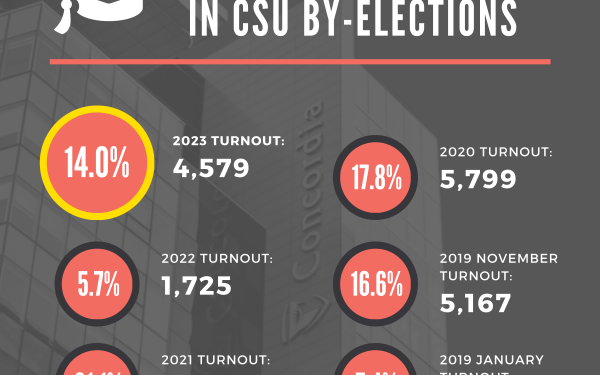The importance of the Student Advocacy Centre
The CSU service that can help you navigate Concordia’s bureaucracy
The Concordia Student Union’s (CSU) Student Advocacy Centre is a service that aims to help defend the rights of students by matching them with a student advocate.
The centre deals with a variety of student complaints and questions, mainly in the sphere of academic misconduct, professor-student relations, questions regarding the Academic Code of Conduct, and issues relating to the Code of Rights and Responsibilities.
Brittany Allison, the centre’s interim manager, said that advocates aim to help students understand Concordia's various policies. Student advocates at the centre can serve as representation for students who are sentenced to a disciplinary meeting.
“If you have an academic misconduct interview or a meeting with a hearing, we go, we attend, we do your opening, we do your closing, we help present your evidence and we help negotiate a sanction," Allison said.
Beyond academic misconduct, student advocates can help with filling student requests for grade re-evaluations, tuition refunds and exam referrals, among others. Sofia Lipari-Couture, the centre’s interim lead advocate and the only full-time student advocate on staff, said that students often don’t know the extent of their rights.
“Students don't know what they have access to,” said Lipari-Couture.”They don't know that they can defer an exam, they don't know that they can discontinue (DISC) a class after the DISC deadline with exceptional circumstances, but these are things that we help with.”
As opposed to the university’s personal advocacy service, the CSU Student Advocacy Centre is independent and is funded by students through a fee levy of $0.48 per credit. According to Allison, that independence reassures students.
“Our interests are for the students,” said Allison. “If you're filing a complaint against somebody at the university, do you want the same people that you're filing a complaint against representing you, or do you want somebody that is independent?”
All consultations with student advocates are fully confidential and advocates cannot act against a student’s will. For Lipari-Couture, the service’s importance lies in helping students navigate situations that can be highly confusing, overwhelming and emotional.
“Students are dealing with a lot,” said Lipari-Couture. “[Concordia’s] website is not really easy to use, but we use it every day, we read the policies every day. I know the policies by heart, so if you come to me and you're in this situation, I can point you into the right direction where you wouldn't have even known where to start.”
Allison and Lipari-Couture want to push against the notion that people who seek student advocates are automatically guilty, and encourage students to reach out to the centre as a first resort when they have concerns.
“I think that's a big objective of ours, that students feel like they're not guilty to come and see us. We'll help with anything, we’ll help explain policies,” said Lipari-Couture. “We will even help you self-advocate for yourself," Allison added.
Allison further explained that seeking help shows that students have done their due diligence. “We've had advisors and people within the university that have said that, when students have advocates put together their requests, it's more simple for them to go through.”
The Advocacy Centre ran for a fee levy increase in the Winter 2024 CSU General Elections. Like the other six fee levy groups that ran alongside them, the referendum question failed. According to Allison, the centre received a record-high number of cases last semester and is looking to expand to meet the demand, which is partly why they ran for an increase.
Kareem Rahaman, the CSU’s finance coordinator, said that students are in a tight financial spot at the moment and the CSU will work harder on marketing its services and their importance.
“In an ideal world, no one has to use the centre because no one has any problems, but the fact of the matter is that there are a lot of people with problems who don't know where to go right now,” Rahaman said.
For Allison, it’s important for the university to have a service to help students that have a difficulty speaking up for themselves. “Concordia is so decentralized and everybody is like, ‘Well, you're an adult. You should know better. You should know how to do this,’ Nobody is ever accounting for the eternal struggles or traumatic events people suffer from in their lives that may prevent them from speaking up, that may prevent them from writing a document, the disabilities that students have.”
Students wishing to use the Student Advocacy Centre’s services can go to their office located in the Mezzanine of the Hall Building or call (514) 848-7474.
This article originally appeared in Volume 44, Issue 13, published April 2, 2024.




__600_375_s_c1.png)
__600_375_90_s_c1.jpg)

